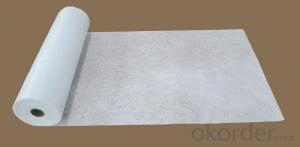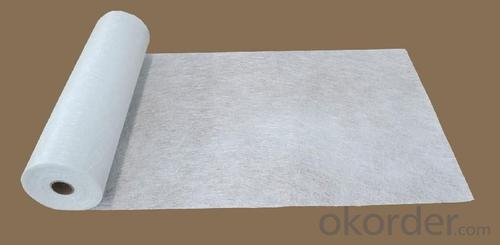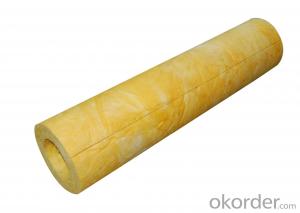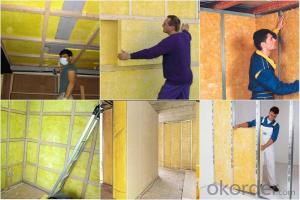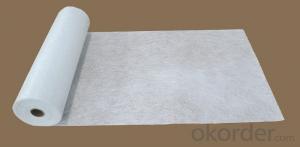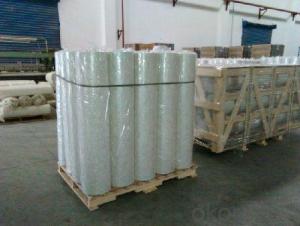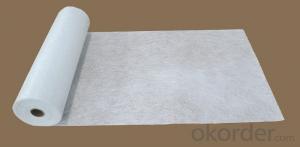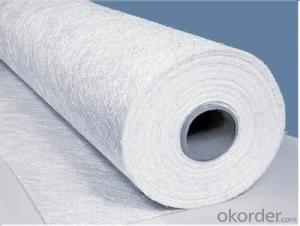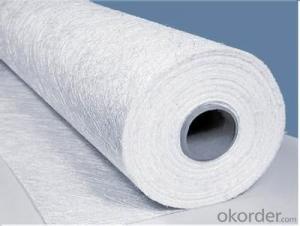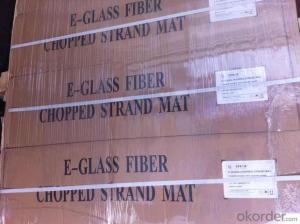Fiberglass Mat Tissue - e-glass Chopped Strand Mat (Powder Bonded)
- Loading Port:
- Shanghai
- Payment Terms:
- TT or LC
- Min Order Qty:
- 20000 kg
- Supply Capability:
- 200000Kg Per Month kg/month
OKorder Service Pledge
OKorder Financial Service
You Might Also Like
1.Brief Introductions
E-Glass Powder Chopped Strand Mat is made of randomly distributed chopped strands held together by a powder binder.
It is compatible with UP, VE, EP, PF resins.
The roll width ranges from 50mm to 3300mm.
Additional demands on wet-out and decomposition time may be available upon request.
2.Product Features
Good wet-through and fast wet-out in resins, rapid air lease
Superior acid corrosion resistance
3.Product Specifications
Property | Area Weight | Moisture Content | Size Content | Breakage Strength | Width |
(%) | (%) | (%) | (N) | (mm) | |
Property | IS03374 | ISO3344 | ISO1887 | ISO3342 | |
EMC80P | ±7.5 | ≤0.20 | 8-12 | ≥40 | 50-3300 |
EMC100P | ≥40 | ||||
EMC120P | ≥50 | ||||
EMC150P | 4-8 | ≥50 | |||
EMC180P | ≥60 | ||||
EMC200P | ≥60 | ||||
EMC225P | ≥60 | ||||
EMC300P | 3-4 | ≥90 | |||
EMC450P | ≥120 | ||||
EMC600P | ≥150 | ||||
EMC900P | ≥200 |
Special specification can be produce according to customer requirements.
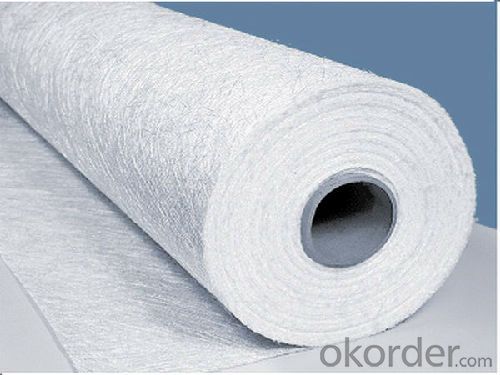
4.FAQ
Packaging:
Each Chopped Strand Mat is wound onto a paper tube which has an inside diameter of 76mm and the mat roll has a diameter of 275mm. The mat roll is wrapped up with plastic film,and then packed in a cardboard box or wrapped up with kraft paper. The rolls can be vertically or horizontally placed. For transportation, the rolls can be loaded into a cantainer directly or on pallets.
Storage:
Unless otherwise specified, Chopped Strand Mat should be stored in a dry, cool and rain-proof area. It is recommended that the room temperature and humidity should be always maintained at 15℃~35℃ and 35%~65% respectively.
- Q: What are the different fabric finishes available for fiberglass mat tissue?
- Fiberglass mat tissue offers several fabric finishes, each with its own unique properties and characteristics. Let's explore some of the most common finishes available: 1. Polyester: Widely used in fiberglass mat tissue, polyester fabric finishes provide excellent strength and durability. This finish improves tear resistance and tensile strength. 2. Polypropylene: Known for its high resistance to chemicals and moisture, polypropylene fabric finishes enhance water resistance properties. Ideal for applications where moisture or chemical exposure is a concern. 3. Acrylic: Acrylic fabric finishes offer good heat resistance and flame retardancy. They improve the material's thermal stability and fire resistance, making it suitable for high-temperature or fire-prone environments. 4. Nylon: Renowned for its excellent abrasion resistance and toughness, nylon fabric finishes enhance durability and wear resistance. Perfect for applications involving frequent contact or friction. 5. Polyethylene: With outstanding resistance to moisture and chemicals, polyethylene fabric finishes improve water repellency and chemical resistance. Ideal for outdoor or corrosive environments. 6. Polyurethane: Polyurethane fabric finishes provide flexibility and elasticity to fiberglass mat tissue. They enhance the material's ability to withstand bending and stretching without breaking or tearing. When selecting a fabric finish for fiberglass mat tissue, it's essential to consider specific application requirements. Factors such as strength, durability, water resistance, flame retardancy, abrasion resistance, and chemical resistance should all be taken into account to choose the appropriate finish.
- Q: Can fiberglass mat tissue be used for reinforcing fiberglass pools?
- Yes, fiberglass mat tissue can be used for reinforcing fiberglass pools. It helps enhance the strength and durability of the pool structure by providing added reinforcement to the fiberglass layers.
- Q: What are the different surface finishes available for fiberglass mat tissue?
- Some common surface finishes available for fiberglass mat tissue include smooth, textured, embossed, and matte finishes. These finishes can provide various aesthetic effects and enhance the performance of the fiberglass mat tissue in different applications.
- Q: How does fiberglass mat tissue perform in terms of heat insulation?
- Fiberglass mat tissue exhibits a relatively satisfactory performance when it comes to heat insulation. Its composition, consisting of delicate glass fibers and a bonding agent, grants it commendable thermal resistance properties. These fibers effectively capture pockets of air, which function as thermal barriers by diminishing heat transfer. Consequently, fiberglass mat tissue emerges as an appropriate insulation material for a diverse range of applications, including the construction industry, where it is employed to insulate walls, roofs, and attics. Furthermore, fiberglass mat tissue finds extensive use in the automotive and aerospace sectors to insulate engine compartments and curtail heat transfer through vehicle panels, respectively. Nevertheless, it is worth noting that although fiberglass mat tissue offers exceptional thermal insulation, it may not be as efficient as alternative insulation materials like foam or mineral wool, which possess higher thermal resistance values. Ultimately, the suitability of fiberglass mat tissue as an insulation material hinges upon the specific requirements of the project at hand.
- Q: Can fiberglass mat tissue be used for repairing fiberglass shower stalls?
- Yes, fiberglass mat tissue can be used for repairing fiberglass shower stalls. Fiberglass mat tissue is a versatile material that is commonly used for reinforcing and repairing fiberglass structures, including shower stalls. It is designed to provide strength and durability to the repaired area, ensuring a long-lasting and reliable fix. When used in combination with a suitable fiberglass resin, fiberglass mat tissue can effectively repair cracks, holes, and other damages in fiberglass shower stalls. However, it is important to carefully follow the manufacturer's instructions and guidelines for proper application and curing to ensure the best results.
- Q: What are the different surface textures available for fiberglass mat tissue?
- There are several different surface textures available for fiberglass mat tissue. One common texture is a smooth surface, which is often used for applications that require a sleek and polished finish. This texture is achieved by using a smooth roller or mold during the manufacturing process, resulting in a flat and even surface. Another texture option is a coarse or rough surface, which is suitable for applications that require enhanced adhesion. This texture is achieved by using a textured roller or mold during manufacturing, creating a surface with small bumps or ridges that provide increased surface area for better bonding with adhesives or coatings. A third texture option is a patterned or embossed surface, which is used for applications that require aesthetic appeal or enhanced grip. This texture is achieved by using a patterned roller or mold during manufacturing, resulting in a surface with raised or recessed designs that can be visually appealing or provide added traction when used on flooring or decking materials. Additionally, manufacturers can customize the surface texture of fiberglass mat tissue to meet specific requirements. This can include creating a textured surface with specific patterns or designs to suit individual needs or preferences. Overall, the different surface textures available for fiberglass mat tissue allow for a wide range of applications, providing options for smooth finishes, enhanced adhesion, aesthetic appeal, or improved grip.
- Q: Can fiberglass mat tissue be used for making lightweight furniture?
- No, fiberglass mat tissue is not typically used for making lightweight furniture. It is primarily used as a reinforcement material in applications such as insulation, automotive parts, and construction, but not for furniture production.
- Q: Does fiberglass mat tissue provide any electrical insulation?
- Yes, fiberglass mat tissue provides electrical insulation. Fiberglass is a non-conductive material, meaning it does not conduct electricity. When used as a mat tissue, it acts as a barrier and prevents the flow of electrical current through the material. This makes it suitable for various electrical applications where insulation is required, such as in the manufacturing of circuit boards, electrical panels, and insulating tapes. Additionally, fiberglass mat tissue is known for its high dielectric strength, which further enhances its electrical insulation properties.
- Q: How does fiberglass mat tissue compare to fiberglass mesh?
- Fiberglass mat tissue and fiberglass mesh serve different purposes and exhibit distinct characteristics. Fiberglass mat tissue, a lightweight and flexible material, finds common use in the production of fiberglass-reinforced plastics (FRP). It is created by randomly dispersing glass fibers onto a mesh or non-woven fabric, which is then bonded with resin. This yields a material with a smooth surface and higher tensile strength compared to fiberglass mesh. Its exceptional strength and stiffness make it an ideal choice for applications that necessitate structural reinforcement, such as automotive parts, boat hulls, and wind turbine blades. Conversely, fiberglass mesh is a woven fabric composed of continuous glass fibers. With its open mesh structure, it facilitates better resin penetration and adhesion. Fiberglass mesh is frequently employed to reinforce surfaces like concrete, stucco, and drywall. It offers excellent crack resistance, dimensional stability, and impact resistance. In construction and renovation projects, fiberglass mesh proves particularly valuable as it reinforces surfaces and prevents cracking. In conclusion, fiberglass mat tissue is better suited for applications requiring structural reinforcement and strength, like FRP production. Its smooth surface and high tensile strength set it apart. On the other hand, fiberglass mesh is commonly used in construction projects to reinforce surfaces and prevent cracking. Its open mesh structure allows for improved resin penetration and adhesion. Ultimately, the choice between fiberglass mat tissue and fiberglass mesh depends on the specific requirements of the application at hand.
- Q: What are the key properties of fiberglass mat tissue?
- Fiberglass mat tissue is a versatile material that possesses several key properties. Firstly, it is made from fine glass fibers that are randomly oriented and bonded together with a binder. This random orientation allows for greater strength and flexibility compared to other materials. One key property of fiberglass mat tissue is its high tensile strength. It can withstand significant amounts of pulling or stretching forces without breaking, making it ideal for applications that require durability and resistance to mechanical stress. Another important property is its excellent thermal insulation capabilities. Fiberglass mat tissue has a low thermal conductivity, meaning it can effectively prevent the transfer of heat. This property makes it suitable for use in insulation applications where it helps to conserve energy and maintain a stable temperature. Fiberglass mat tissue also exhibits good chemical resistance. It is not easily affected by exposure to chemicals, acids, or alkaline substances. This property makes it a suitable choice for applications such as chemical storage tanks or pipes where resistance to corrosion is required. Furthermore, fiberglass mat tissue has excellent moisture resistance. It does not absorb water easily, which makes it resistant to rot and decay. This property makes it suitable for outdoor applications or in environments with high humidity. Lastly, fiberglass mat tissue is lightweight and easy to handle. It can be easily cut, shaped, and installed, making it a convenient material for various applications. In summary, the key properties of fiberglass mat tissue include high tensile strength, thermal insulation capabilities, chemical resistance, moisture resistance, and lightweight. These properties make it a versatile material that can be used in a wide range of applications such as construction, automotive, aerospace, and marine industries.
Send your message to us
Fiberglass Mat Tissue - e-glass Chopped Strand Mat (Powder Bonded)
- Loading Port:
- Shanghai
- Payment Terms:
- TT or LC
- Min Order Qty:
- 20000 kg
- Supply Capability:
- 200000Kg Per Month kg/month
OKorder Service Pledge
OKorder Financial Service
Similar products
Hot products
Hot Searches
Related keywords
